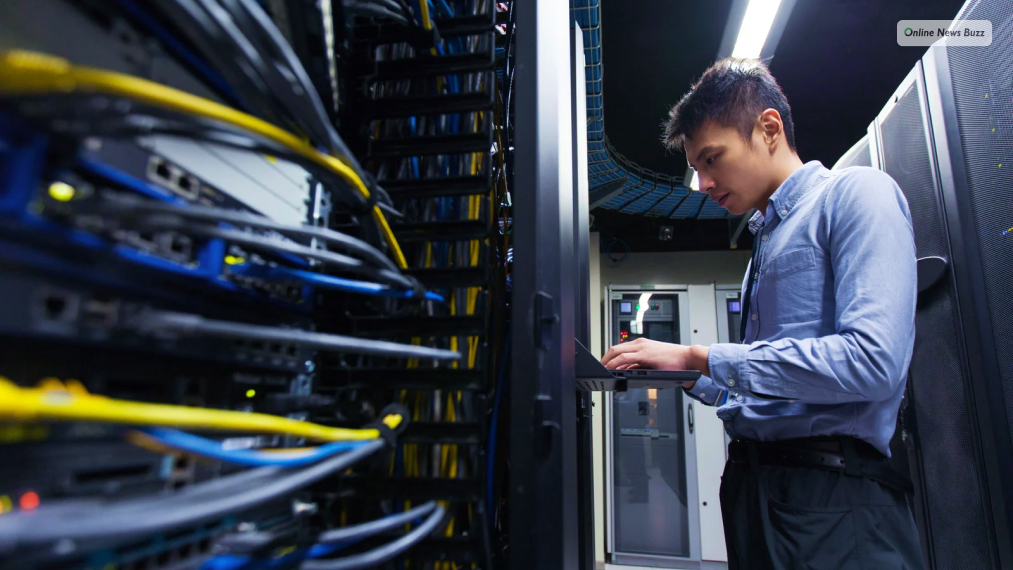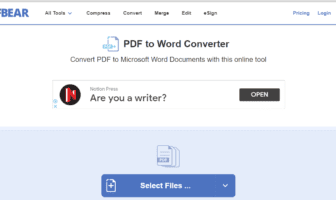
Did you know that every time you post on social media channels, check your bank balance or back up your computer to the cloud, you are interacting with a data center?
Most businesses in this data-driven world depend on the services of data center providers to store and process their data. It is like our dependence on a reliable water supply, the electrical grid, or the highway system.
A data center is an infrastructure that houses a large volume of networked computer servers. These servers are used by organizations, governments, and businesses to remotely store, process, and distribution large amounts of data.
While many businesses facilitate their data in-house, a data center provides round-the-clock services of processing and handling the data on a large scale.
There are more millions of data centers all over the world. It can be a private data center or a shared data center that offers colocation services. If this is your first time outsourcing your data center, you will be overwhelmed by the enormous choices.
How to Choose a Data Center Provider

To help you choose the right data center provider, we have come up with this step-by-step guide.
Data centers can come in all sizes, and the right one for your business will depend on its nature and the specifics you need for your day to day operations. There are several key points that you should consider tapping into a reliable data center provider.
1. Location
One of the significant factors to consider when choosing a data center provider is its location. You can go off-site or on-site for a data center, but one thing it requires is ease of accessibility. The IT staff should be able to access the location for data center maintenance and repair.
It should also include all other factors into account like the neighboring issues, geological risks, and even the local flight paths. It should also have access to affordable power and has broadband availability. Its transmission networks should be able to transverse the open areas securely.
2. Reliability
The next criteria to use in selecting a data center provider is its reliability. Does it have an alternative power source in case of power interruptions? Is there an adequate cooling system? The servers continuously produce heat, and if the servers have unreliable cooling, it will lead to possible downtime. It should also have redundancy systems to make sure that it will not stop its operations during emergencies.
3. Security
Data security is a significant issue in data management. Individual companies have different cyber security efforts to ensure that the data is safe from malicious cyber attacks.
We are talking about physical security here too. The data needs to be secure from physical threats like destruction, theft, and unauthorized access to the data. It is critical to look for a data center provider that invests in physical security like protection of the infrastructure, surveillance equipment, and security personnel.
4. Network Capacity
The data center depends on its network infrastructure for capacity. Different variables like speed, reliability, and security can give you an idea of the reliability of the network. One thing you should look for in a data center provider is its adequate network fiber capacity for your needs. With such capacity, you don’t have to worry about getting more bandwidth when your business grows as this provider will be able to meet your needs.
5. Adaptability and Scalability
Your business is dynamic, and it is bound to have changing requirements as the days pass by. With this in mind, look for a data center provider that offers flexibility to accommodate your present and future requirements.
Another factor to consider is scalability. Your business will grow, and that is inevitable. As the years go by, you will have enormous data that will accumulate with your growth. You need a data center that can handle your increasing demand without hampering your operations.
6. Backup System
Another factor to look for in a data center provider is its capacity to respond to all manners of emergency. The data center should be able to function without interruption and remain unaffected by any accident or disaster. Its backup system should cover power generators, fire suppression, and others that will ensure business continuity even during calamities.
7. Reputation of the Service Provider
You should be able to tell the difference between the firm’s marketing image and its reputation. Look beyond the noise to know the quality of service that it provides. There are plenty of resources available that will help you with this. All you need to do is a little research.
Check the reviews and feedback from its former clients. This will provide you with information that can help you determine if the provider is a perfect fit for your business needs.
Common Mistakes Businesses Make When Choosing a Data Center Provider

Choosing a data center provider is a critical decision, yet many businesses make mistakes that can be easily avoided with a little foresight.
One of the most common errors is underestimating future scalability needs. Businesses often focus on their current data requirements without considering how rapidly their data could grow.
You might be fine with a smaller capacity now, but what happens when your customer base doubles? Or, you launch a new service that demands more storage and processing power?
It’s essential to plan ahead!
Look for a provider that offers flexible and scalable solutions so you can grow seamlessly without needing to switch providers down the road.
Another frequent mistake is overlooking the importance of location. Many businesses choose data centers based solely on cost or convenience, without considering potential risks like natural disasters, access to affordable power, or proximity to IT staff for maintenance.
Always ensure the data center is located in a region that minimizes risk and maximizes efficiency.
Myths About Data Centers
There are also some common myths about data centers that could steer you in the wrong direction if you’re not careful. One widespread misconception is the idea that all data centers offer the same level of security and reliability.
This couldn’t be further from the truth. Not every data center is built to withstand cyber-attacks, power outages, or physical breaches.
When choosing a provider, don’t assume that just because they’re a large or well-known company and they offer top-tier security.
Always check for specific certifications like ISO 27001 or SSAE 18, which indicate that a provider meets industry security standards.
Another myth is that data centers are immune to downtime. While the best providers offer impressive uptime guarantees, no data center is completely immune to unexpected events like natural disasters or equipment failure.
However, a good data center will have redundant systems in place, such as backup generators and cooling systems, to minimize the impact of such events.
So, avoid getting caught up in these myths or making short-sighted decisions. Always plan for growth, prioritize security, and don’t make any promises at face value. After all, your data is one of your most valuable assets.
Read Also:




























